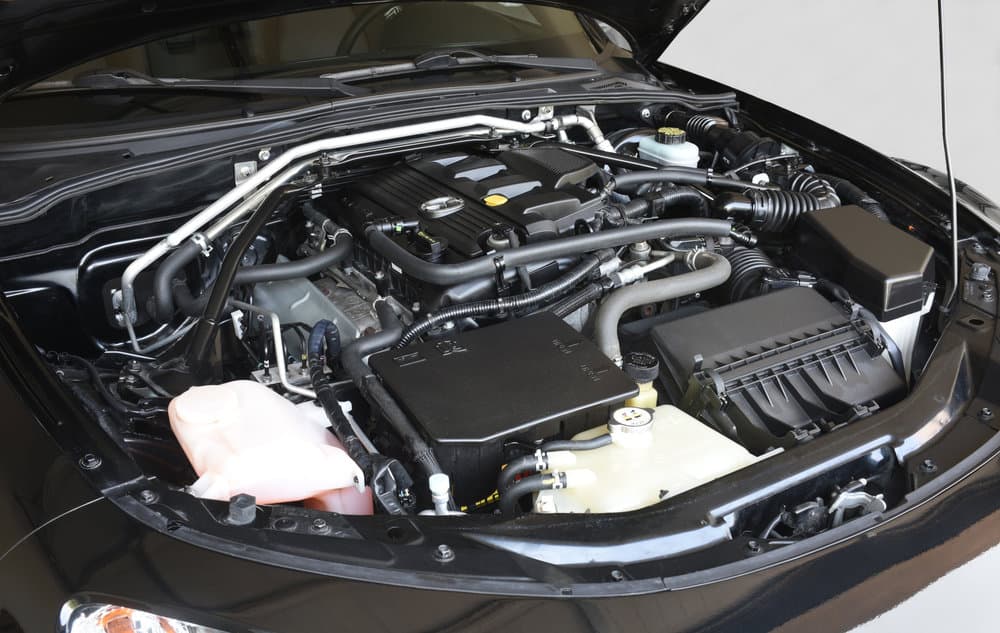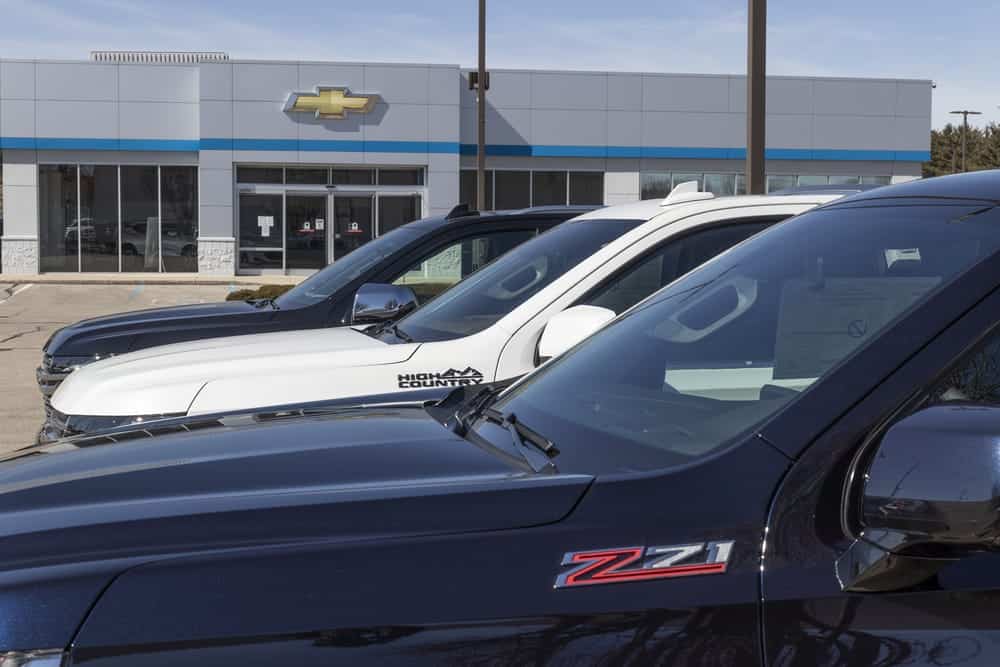Has your 2021 Mazda suffered from excessive oil consumption? If so, you should pay close attention to your potential legal rights and options.
A class action lawsuit was recently filed in the Eastern District of California on behalf of people who bought or leased a model year 2021 Mazda 3, Mazda 6, Mazda CX-30, Mazda CX-5, or Mazda CX-9 vehicle alleging these cars have an engine defect which causes them to burn excessive amounts of engine oil.
The complaint filed in the class action lawsuit specifically alleges that the vehicles:
“Contain an unidentified Defect in their powertrain components that causes engine oil to leak into the Vehicle engine’s combustion chamber. This Defect causes the Vehicles to consume an excessive amount of engine oil far beyond the norm of comparable vehicles. If left unaddressed, this Defect will cause long-term damage to the Vehicle’s engines and other components and will cause them to be more likely to fail and require replacement… The Defect can also cause the engine valves to fail to seal, and thus cause a lack of compression which restricts the acceleration of the Vehicles.”
This Mazda engine defect is called the “Oil Consumption Defect” in the class action lawsuit.
The class action also alleges that Mazda’s Owner’s Manual and Warranty for each of the vehicles advise that an oil service is recommended for a Vehicle only once every 10,000 miles. Thus, a Vehicle that requires an oil service after only 1,200 miles driven – such as the alleged situation with the plaintiff — consumes engine oil at a rate about 8.3 times higher than expected.
The class action lawsuit further alleges that Mazda knew of the Oil Consumption Defect and the resulting engine damage. Yet despite this knowledge, Mazda continued selling and leasing affected vehicles without disclosing the Oil Consumption Defect. Instead, Mazda let drivers continue driving those vehicles, despite knowing they are consuming oil at an abnormally high rate.
According to his complaint, the plaintiff is not alone in his concerns, as thousands of complaints regarding the Oil Consumption Defect have been posted by customers on various websites, including the website of the National Highway Traffic Safety Administration (“NHTSA”).
Plaintiff also alleges Mazda did not disclose the Oil Consumption Defect or any of its causes to consumers before they bought or leased these vehicles.
Current or former owners or lessees of these vehicles should be aware that the California lemon law and other state and federal laws may force Mazda to either “buy the vehicle back” or provide further significant compensation for those experiencing the defect.
Under California’s lemon law, qualifying “lemons” must be repurchased. That can mean a large cash refund and your loan or lease payoff. The refund could be as much as everything you paid for the vehicle and everything you owe: monthly payments, down payments, tax, finance charges, license, registration, etc. You could even qualify for two times your money back.
What Mazda would have to buy it for has nothing to do with how much the vehicle is currently worth. The law has a formula that starts with you getting all your money back and then taking certain deductions and exclusions away from your payment. Those refunds and exclusions are challenging to understand and can be fought against by knowledgeable consumer attorneys.
Mazda Oil Consumption Class Action Lawsuit Status
Plaintiff Brian Heinz filed a class action lawsuit over the engine Oil Consumption Defect on November 15, 2022. Plaintiff alleges that he is seeking certification of a Class of consumers nationwide and a subclass of residents of California.
Mazda has yet to respond to the complaint, and the Court still needs to certify the case to move forward as a class action.
Your Options as an Owner
In a class action lawsuit, if the class is certified by the Court, the lawyers who bring the class action represent you. If plaintiffs prevail at trial, you will receive whatever relief the judge or jury awards. But if they lose, you may not litigate claims over the issues raised in the case.
If the Court certifies the case to move forward as a class action lawsuit, you will receive notice of your right to opt-out by a specific deadline. That may not take place for months or years.
As with most litigation, the vast majority of class action cases settle. If the case settles and the Court preliminarily approves the settlement, you will receive a class notice describing your options. For many people, a class action settlement may provide significant benefits and requires little effort to participate. It also comes with no risk, as the claims have been resolved.
But for consumers who have experienced this defect, pursuing individual claims may provide them an opportunity to receive a better recovery in a shorter period (but with no guarantee, they will get anything in a settlement). It depends on how any settlement is structured, but generally, if you do not opt-out of a class action settlement, you will be bound by its terms. You will automatically receive any benefits offered in the settlement or by submitting a claim form. However, you cannot bring any individual claim for damages caused by the Oil Consumption Defect, except possibly for personal injury claims.

Whether to pursue an individual claim is complicated as it can depend on many factors, such as:
- How old is your car?
- Has the Oil Consumption Defect occurred in your car?
- Have you taken it in for repairs on more than one occasion?
- Do you still own the car?
- Is the vehicle still under warranty?
- Where do you live?
If you experienced the oil consumption defect and are willing to consider getting a more significant recovery than what might be offered in any class action settlement years from now, please get in touch with us for a free lemon law consultation.
Mazda Oil Consumption Class Action FAQs
What is the class action lawsuit name and case number?
Heinz v. Mazda Motor of America, Inc. et al., E.D. Cal. Case No. 2:22-cv-02058-TLN-CKD
On Whose Behalf was the class action lawsuit filed, and has Mazda responded?
The case was filed in the United States District Court for the Eastern District of California on November 15, 2022. Plaintiff intends to seek certification of a nationwide Class of Vehicle owners and lessees and a California Subclass of owners and lessees who live in California.
Mazda still needs to respond to the class action lawsuit.
What does the Mazda class action lawsuit allege about the Defect?
The complaint filed in the class action lawsuit alleges that the vehicles “contain an unidentified Defect in their powertrain components that causes engine oil to leak into the Vehicle engine’s combustion chamber. This defect causes the Vehicles to consume an excessive amount of engine oil far beyond the norm of comparable vehicles. If left unaddressed, this defect will cause long-term damage to the Vehicle’s engines and other components and will cause them to be more likely to fail and require replacement. **** The Defect can also cause the engine valves to fail to seal, and thus cause a lack of compression which restricts the acceleration of the Vehicles.”
The complaint also alleges that Mazda’s Owner’s Manual and Warranty for each vehicle advise that an oil service is recommended for a Vehicle only once every 10,000 miles. Thus, a Vehicle that requires an oil service after only 1,200 miles driven – such as the alleged situation with the plaintiff — consumes engine oil at a rate about 8.3 times higher than expected.
The complaint further alleges that Mazda knew of the Oil Consumption Defect and the resulting engine damage. Yet despite this knowledge, Mazda continued selling and leasing affected vehicles without disclosing the Oil Consumption Defect. Instead, Mazda let drivers continue driving those vehicles, despite knowing they are consuming oil at an abnormally high rate.
On or around October 4, 2021, Mazda issued a Technical Service Bulletin (“TSB”) 01-012/21 entitled, “Check Engine Light On with DTC P250F:00 Due to Low Engine Oil Level,” which described a defect causing high engine oil consumption which may result in the “LOW ENGINE OIL LEVEL” warning message and Check Engine light (CEL) illumination in the following model year Mazda vehicles:
2021 Mazda 3
2021 Mazda 6
2021 Mazda CX-30
2021 Mazda CX-5
2021 Mazda CX-9
The class action alleges that because these vehicles suffer from the Oil Consumption Defect, which causes excessive oil loss and leads to engine damage, Mazda breached both its express and implied warranties.
The class action lawsuit alleges that Mazda breached its express warranty to repair defects in materials and workmanship within the vehicles, as Mazda has not fixed and cannot repair the Oil Consumption Defect. The lawsuit also alleges that the vehicles did not follow the implied warranty of merchantability because, at the time of sale, they were defective and not in merchantable condition, would not pass without objection in the trade, and were not fit for the ordinary purpose for which vehicles were used.
The class action also alleges Mazda’s Limited Warranty is a written warranty within the meaning of the Magnuson-Moss Warranty Act, 15 USC §2301(6). Because Mazda breached implied and express warranties, purchasers or lessees of these Vehicles received goods with a substantially impaired value that Mazda has failed or refused to repair.
How many Mazda vehicles are affected by the oil consumption defect?
According to publicly available data, the total number of vehicles sold is upwards of 257,000.
What does the class action allege causes the oil consumption defect?
In his complaint, the plaintiff alleges that the “Class Vehicles contain an unidentified Defect in their powertrain components that causes engine oil to leak into the Vehicle’s engine’s combustion chamber. This defect causes the Vehicles to consume an excessive amount of engine oil far beyond the norm of comparable vehicles. If left unaddressed, this defect will cause long-term damage to the Vehicle’s engines and other components and will cause them to be more likely to fail and require replacement. **** The Defect can also cause the engine valves to fail to seal, and thus cause a lack of compression which restricts the acceleration of the Class Vehicles.”
The complaint alleges that while multiple factors contribute to the excessive Oil Consumption Defect in the vehicles, it is an inherent defect in each vehicle.
According to the class action complaint, if the Oil Consumption Defect is not remedied, the vehicles can suffer engine failure and engine damage, including spark plug fouling, ring wear, lifter collapse, bent pushrods, camshaft wear, valve wear, rod bearing wear, rod breakage, wrist pin wear, wrist pin breakage, crankshaft wear, and main bearing wear or destruction and other forms of internal component wear or breakage due to unacceptable heat and friction levels resulting from oil breakdown in the engine.
How does the oil consumption defect violate the vehicle warranty?
According to the class action complaint, Mazda’s New-Vehicle Limited Warranty promises there Mazda vehicles are “free of defects with normal use and prescribed maintenance for 36 months or 36,000 miles, whichever comes first.” Mazda’s Powertrain Limited Warranty covers repairs for “defects in materials and workmanship in the powertrain components supplied by Mazda for “60 months or 60,000 miles, whichever comes first.” (Mazda warranty at https://www.mazdausa.com/fleet/warranty)
In its Limited Warranty, Mazda warranted that it would repair or replace defects in material or workmanship for free if they became apparent during the warranty period.
Are the Class Vehicles unsafe?
According to the class action complaint, any car that can suffer engine failure and engine damage, including spark plug fouling, ring wear, lifter collapse, bent pushrods, camshaft wear, valve wear, rod bearing wear, rod breakage, wrist pin wear, wrist pin breakage, crankshaft wear, and main bearing wear or destruction and other forms of internal component wear/breakage due to unacceptable heat and friction levels resulting from oil breakdown, and as a result can stall or has a significant chance of stalling, is unsafe.
Have Mazda owners been offered anything?
According to the class action complaint, on or around October 4, 2021, Mazda issued a Technical Service Bulletin (“TSB”) 01-012/21 entitled, “Check Engine Light On with DTC P250F:00 Due to Low Engine Oil Level,” which described a defect causing high engine oil consumption which may result in the “LOW ENGINE OIL LEVEL” warning message and Check Engine light (CEL) illumination.
The class action also alleges that, despite issuing this TSB, Mazda has not provided an adequate repair procedure to address the Oil Consumption Defect in the vehicles. The plaintiff further asserts that he has not been provided any repair options to address his underlying problems. He is highly concerned with his vehicle’s excessive oil consumption and the resulting safety issues he is now forced to deal with.
Has there been a recall of these Vehicles?
No. Mazda has not issued a recall over the Oil Consumption Defect.
Has the Mazda oil consumption class action settled?
No.

Why Should I Not Participate in Any Class Action Lawsuit or Settlement?
For many people, a class action provides them significant benefits, spending no money or doing much other than completing a claim form.
However, other people may decide that the relief offered as part of the class action settlement is inadequate, that they do not want to wait to get relief, or that they think they will get more if they do not participate in the class action settlement. This depends on a variety of factors, such as: how old your car is, whether you can document the defect that occurred in your vehicle, whether you have taken it in for repairs on more than one occasion, do you still own or lease the car, is it still under warranty and where do you live.
Depending on the answers to those questions, while there is no guarantee you will receive any recovery, if you opt-out, you may have the opportunity to receive significant relief, including a vehicle repurchase and penalties.
To bring your own claim, you can do so now and opt-out later if you receive notice of the class action lawsuit or any settlement. Or the class will be defined by the Court as only including those who have not sued or settled their claims.
Armed Forces Members have Additional Legal Rights
Under Cal. Civil Code 1795.8, if a person is a member of the Armed Forces, the protections of the Song-Beverly Act may apply, even if you bought your vehicle outside of California, so long as the manufacturer sells cars in California. The Armed Forces member would need to show they were stationed in or a resident of California when they bought or leased the vehicle or filed a claim against the manufacturer.
The Song-Beverly Warranty Act
The Song-Beverly Warranty Act, California Civil Code §1793.2(d)(1), is a California state law that requires manufacturers to repair defects after a reasonable number of repair attempts. What is “reasonable” is not part of hard and fast rules – safety defects should be fixed immediately, for example. The defects must be significant, and must “substantially impair the vehicle’s use, value, OR safety.” Civil Code §1793.22(e)(2).
Under Civil Code §1793.2(d)(1), manufacturers must promptly offer repurchase or replacement of the Class Vehicle they cannot fix in a reasonable time frame. In addition, Civil Code §1794(c) and §1793.2(d) provide that customers may receive a civil penalty up to two times the actual damages if manufacturers acted “willfully” (meaning knowingly, but not necessarily with wrongful or malicious intent) in ignoring or failing its obligations under the Song-Beverly Warranty Act. Under Civil Code §1794(d), manufacturers must also pay the plaintiff’s attorney’s fees and costs as part of the settlement, as the Song-Beverly Act is a pro-consumer statute.
A lemon law lawsuit may entitle you to repurchase and other compensation
Under California’s lemon law, qualifying “lemons” must be repurchased. That can mean a large cash refund and your loan or lease payoff. The refund could be as much as everything you paid for the vehicle and everything you owe: monthly payments, down payments, tax, finance charges, license, registration, etc. You could even qualify for two times your money back.
What Mazda would have to buy it for has nothing to do with how much the vehicle is currently worth. There is a formula in the law that starts with you getting all your money back and then taking certain deductions and exclusions away from your payment. These options are challenging to understand and can be fought against by knowledgeable consumer attorneys.
Don’t settle for small dollar payments or more possible fixes without speaking to a qualified consumer attorney with your individual best interest in mind. Watch the mail, watch your email, and contact a consumer lawyer for advice when and if the case settles.
Have questions? Get a free lemon law review.
There are a lot of factors to consider in deciding whether to pursue lemon law claims. We can help you sort through these questions and make an informed decision.
Confidential • No cost • No obligation



